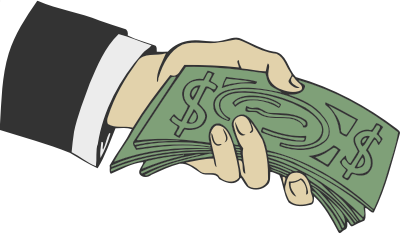When you receive a financial aid offer from the college or career technology center you may be interested in attending, it’s possible that one or more student loans will be included in that offer. If student loans are required to help you cover your educational expenses, you’ll want to borrow smart from the very start of your college experience to minimize debt after graduation. Here are some things you need to know as you consider student loans:
- Use ‘free money’ first. Take advantage of all the gift aid you’re offered—grants and scholarships—before deciding whether to take out student loans.
- Consider a part–time job. Working part-time while in college can significantly reduce the amount of debt you may have upon graduation. Ask your financial aid office if you qualify for a program called ‘work study.’ It allows eligible students to work on-campus to earn money for college costs. If work study is not available to you, simply find a part-time job with manageable hours to help you cover your expenses.
- You don’t have to accept all student loans you’re offered. Now imagine the heading you just read, spelled out in neon, in bright flashing lights—that’s how important it is for your success after college! If you must borrow money, you have the right to accept only what you need to get you through one year of college after any grants and scholarships have been applied. Review your finances each semester, and keep that commitment to borrow only what you need to cover school expenses.
- Do your research. Some experts recommend that once you begin repayment on any student loans you’ve borrowed in college, your monthly payment should be no more than 8-10% of the monthly income you expect to earn the first year after graduation. To estimate your loan payments, use the Loan Calculator found at ReadySetRepay.org.
- Subsidized Student Loans = less expensive. Interest won’t be added to a federal subsidized student loan while you’re in college until you graduate, withdraw or drop your class load to less than half-time status.
- Make interest payments. Students who borrow federal unsubsidized loans are responsible for all interest once the first disbursement has been received by their educational institution. Unlike subsidized loans, the government does not pay the interest on unsubsidized loans and therefore interest begins to accrue right from the start. If possible, borrowers are encouraged to make interest payments during college to keep their balance paid down.
- Keep in touch with your loan servicer(s) or lender. Always make sure you let them know your current address, phone number or email address, and contact them if you’re having trouble making your payments. You can find contact information for your lenders/servicers at StudentAid.gov under Manage Loans. Be sure to have your FSA ID handy to access this information—it’s the username and password you created when you submitted your FAFSA.
- Stay informed. Find more information and FAQs at ReadySetRepay.org and StudentAid.gov.


